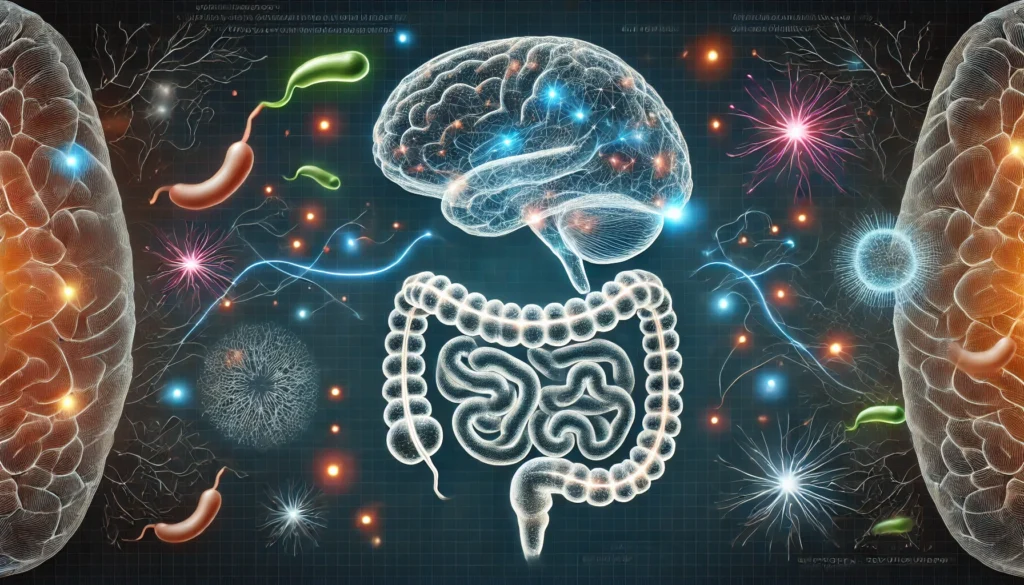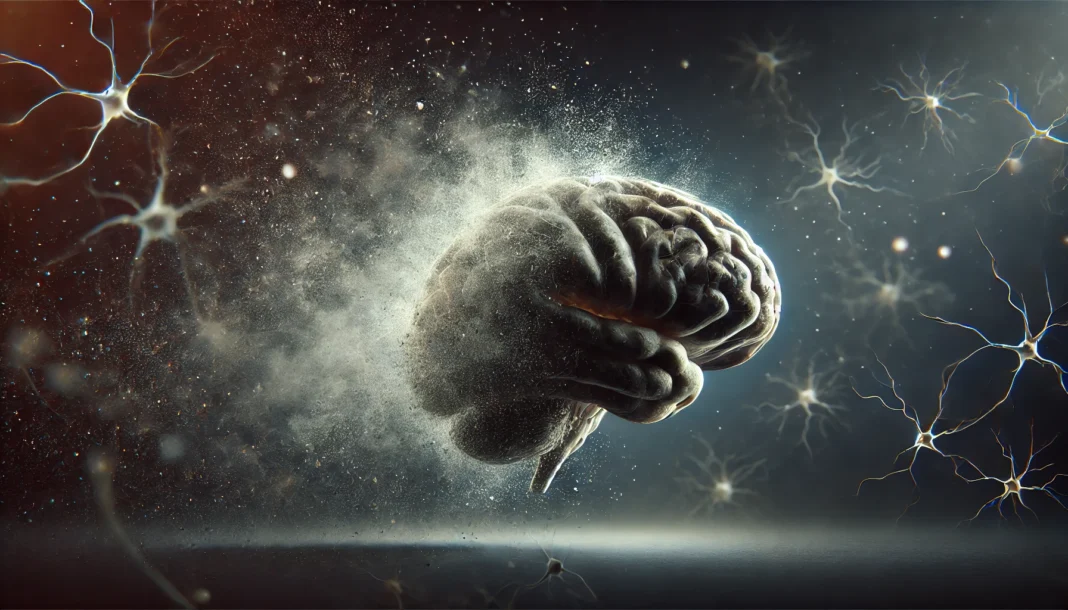Introduction
The human brain is a marvel of evolution—capable of reasoning, memory, emotion, creativity, and abstract thought. But as complex as it is, the brain is also vulnerable. Over time or due to certain conditions, it can begin to deteriorate, with subtle signs often appearing before a clear diagnosis. From occasional forgetfulness to serious neurodegenerative disorders, the consequences of a deteriorating brain ripple across every domain of human life. Understanding the biological, environmental, and nutritional causes behind the loss of brain function has become a central concern in modern neuroscience and medical research.
You may also like: How Do I Fix My Brain? Proven Nutrition and Lifestyle Strategies to Manage Brain Health Naturally
As the global population ages and chronic disease rates climb, identifying early indicators and modifiable risk factors associated with cognitive decline has never been more urgent. Memory lapses, slower thinking, mood instability, and impaired judgment are not merely inconvenient—they may be precursors to more serious outcomes like dementia or Alzheimer’s disease. While some decline may be a normal part of aging, distinguishing between benign changes and a deteriorating brain requires insight, vigilance, and a commitment to evidence-based prevention strategies.
Scientific research is now uncovering how lifestyle, nutrition, inflammation, mitochondrial health, and vascular integrity influence brain aging. This article explores the latest findings on how the brain loses function, what biological systems are involved, and how we might slow or even reverse the progression toward cognitive impairment. With the right interventions, it may be possible not only to protect but to enhance mental vitality throughout life.

Understanding Brain Deterioration: When Normal Becomes Concerning
As people age, it is natural to experience some changes in brain function. These may include slower processing speed, occasional word-finding difficulty, or brief moments of forgetfulness. However, when these issues begin to interfere with daily functioning or worsen over time, they may indicate the presence of a deteriorating brain.
Brain deterioration refers to structural and functional decline in the central nervous system, which can manifest as changes in memory, reasoning, language, and personality. This is not always pathological—in some cases, it may result from normal aging. But when coupled with excessive inflammation, oxidative stress, or disease pathology, it can lead to accelerated loss of brain function. One of the challenges scientists face is determining which changes are reversible and which signal permanent damage.
A deteriorating brain often begins with subtle symptoms. People may notice difficulty concentrating, feeling mentally fatigued after tasks that were once easy, or a gradual decline in short-term memory. These early warning signs can be easy to dismiss, but they often mark the transition from a healthy to a vulnerable cognitive state. Tracking these early indicators through cognitive assessments, imaging, and biomarkers can provide crucial intervention windows.

Common Causes Behind a Deteriorating Brain
Several interconnected biological mechanisms contribute to the gradual loss of brain function. While genetics play a role, most cases of cognitive decline are influenced by modifiable lifestyle and environmental factors.
One of the most prominent contributors is chronic inflammation. When inflammatory processes persist in the brain, they activate microglia—the immune cells of the central nervous system—which can begin to damage neurons and synaptic connections. Over time, this inflammation erodes the brain’s capacity for plasticity and repair.
Oxidative stress is another key player. The brain consumes a significant amount of oxygen relative to its size, making it particularly susceptible to oxidative damage from free radicals. This damage can accumulate over time, particularly in individuals with poor diets, high levels of stress, or exposure to environmental toxins.
Mitochondrial dysfunction also plays a pivotal role in the deterioration process. Mitochondria are responsible for producing the energy needed to sustain brain activity. When they become damaged or less efficient, neurons can’t function properly, leading to energy shortages, cell death, and an overall loss of brain function.
Other contributing factors include poor circulation, insulin resistance (as seen in type 2 diabetes), nutrient deficiencies, chronic stress, sleep disorders, and neurotoxins such as heavy metals. Understanding how these elements interact can guide targeted prevention and treatment strategies for slowing a deteriorating brain.
How Loss of Brain Function Manifests Clinically
The decline in cognitive ability associated with a deteriorating brain typically occurs gradually, but its impact can be profound. In the early stages, signs may be misattributed to fatigue, aging, or stress. Yet these mild symptoms often escalate, forming a pattern of dysfunction that can affect all aspects of daily life.
Memory loss is often the most recognizable symptom. This can begin with difficulties in forming new memories, misplacing items, or forgetting appointments. As deterioration progresses, individuals may forget recent conversations or struggle to recall familiar names and faces.
Attention and executive function are also affected. Tasks that require planning, problem-solving, or multitasking may become more challenging. People may feel overwhelmed by previously manageable workloads, or struggle to focus during conversations and decision-making.
In more advanced stages, language deficits, emotional dysregulation, and disorientation can emerge. Some may experience apathy, depression, anxiety, or irritability—often resulting from frustration with their declining abilities. Personality changes can occur, and social withdrawal becomes common, further exacerbating isolation and mental decline.
In neurodegenerative diseases like Alzheimer’s, Parkinson’s, or frontotemporal dementia, the loss of brain function is progressive and ultimately leads to profound disability. However, early identification and intervention in cases of mild cognitive impairment can delay progression and preserve quality of life.
The Role of Neuroplasticity in Brain Resilience
One of the most promising discoveries in neuroscience is the concept of neuroplasticity—the brain’s ability to reorganize, adapt, and even form new neural connections throughout life. This capacity underlies learning, memory, and recovery from injury. Even in a deteriorating brain, neuroplasticity offers hope for rehabilitation and functional recovery.
In the context of cognitive decline, neuroplasticity means that brain function is not fixed or irreversibly lost. Through targeted interventions—such as cognitive training, physical activity, and dietary optimization—the brain can regain lost capacities or reinforce alternative neural pathways to compensate for damage.
Neuroplasticity is enhanced by novelty, challenge, and repetition. Activities like learning a new language, playing a musical instrument, or engaging in mentally stimulating games can help maintain and even restore brain function. Social interaction, creativity, and exposure to nature also boost neuroplastic mechanisms.
Importantly, physical activity is one of the most powerful stimulants of neuroplasticity. Aerobic exercise increases the production of brain-derived neurotrophic factor (BDNF), a protein that supports neuron growth and connectivity. This highlights the interconnected nature of body and brain health—and the potential to slow a deteriorating brain through lifestyle change.

Nutritional Strategies to Prevent Loss of Brain Function
Nutrition plays a foundational role in supporting cognitive health and preventing a deteriorating brain. The brain requires a steady supply of macronutrients for energy and micronutrients for enzymatic and antioxidant function. Deficiencies in key nutrients can impair neurotransmission, synaptic function, and mitochondrial activity—ultimately accelerating cognitive decline.
Omega-3 fatty acids, particularly DHA, are essential for maintaining cell membrane fluidity and reducing neuroinflammation. Regular consumption of fatty fish, flaxseeds, and walnuts supports cognitive resilience.
B vitamins—especially B6, B9 (folate), and B12—are vital for methylation, homocysteine regulation, and neurotransmitter synthesis. Low levels of these nutrients are associated with increased risk of brain atrophy and Alzheimer’s disease.
Antioxidants such as vitamin E, vitamin C, polyphenols, and carotenoids help neutralize oxidative stress. Brightly colored fruits and vegetables, green tea, and dark chocolate are rich in these compounds and support healthy aging of the brain.
Magnesium and zinc are essential for synaptic plasticity, learning, and memory formation. Deficiencies are linked to mood disturbances, irritability, and impaired cognition.
Curcumin, the active compound in turmeric, has shown potential to reduce neuroinflammation and beta-amyloid plaque formation. As a natural anti-inflammatory, it may slow brain deterioration in susceptible individuals.
A Mediterranean-style diet—rich in whole grains, healthy fats, fruits, vegetables, legumes, and lean proteins—has been consistently associated with reduced risk of loss of brain function in observational studies and randomized trials. Intermittent fasting and caloric restriction may also promote brain longevity by enhancing mitochondrial health and autophagy.
Lifestyle Factors That Influence Brain Health
Beyond diet, several lifestyle habits profoundly impact the trajectory of brain health. A holistic approach is essential for both prevention and intervention when dealing with a deteriorating brain.
Physical activity, especially aerobic exercise, increases cerebral blood flow, stimulates BDNF production, and supports vascular health—all crucial for sustaining cognitive function. Resistance training adds additional benefits by reducing insulin resistance and systemic inflammation.
Sleep quality is another major pillar. During deep sleep, the brain undergoes processes of detoxification, memory consolidation, and cellular repair. Sleep deprivation or fragmentation can accelerate brain aging and worsen the loss of brain function over time.
Stress management is equally important. Chronic stress increases cortisol, disrupts the hippocampus (a brain region central to memory), and promotes inflammation. Mindfulness, meditation, breathing techniques, and time in nature can restore hormonal balance and cognitive calm.
Cognitive stimulation through reading, problem-solving, learning, and creativity helps preserve neural circuitry. Even in later life, staying mentally active is a powerful way to protect against a deteriorating brain.
Social engagement has also been shown to reduce the risk of cognitive decline. Humans are wired for connection, and regular interaction keeps emotional centers active while challenging communication and empathy networks in the brain.

The Gut-Brain Axis and Cognitive Decline
The emerging field of the gut-brain axis explores how the microbiome—trillions of bacteria residing in the gut—communicates with and influences brain function. Through neural, hormonal, and immune pathways, the gut microbiota can impact mood, memory, and neuroinflammation.
An imbalanced microbiome (dysbiosis) can lead to increased intestinal permeability, allowing inflammatory molecules and endotoxins into circulation. This systemic inflammation can reach the brain and contribute to a deteriorating brain state. Moreover, certain gut bacteria produce neurotransmitters like GABA, serotonin, and dopamine—directly affecting cognitive function.
Diets high in fiber, fermented foods, and prebiotics support a healthy microbiome. Probiotic supplementation may also offer cognitive benefits, particularly in older adults or those experiencing stress-related cognitive impairments. The connection between gut health and loss of brain function continues to gain traction, highlighting the importance of comprehensive, body-wide approaches to mental wellness.
Medical Conditions Linked to Cognitive Decline
Many chronic medical conditions increase the risk of cognitive decline and should be actively managed to prevent a deteriorating brain. Type 2 diabetes, for instance, impairs insulin signaling in the brain, reduces glucose metabolism, and accelerates neurodegeneration.
Hypertension and cardiovascular disease decrease cerebral perfusion and can lead to vascular dementia. Maintaining blood pressure and cholesterol levels within optimal ranges is essential for protecting the brain.
Obstructive sleep apnea deprives the brain of oxygen and disrupts restorative sleep cycles. It is a known contributor to memory problems, mood disturbances, and long-term structural changes in brain regions associated with cognition.
Depression and anxiety disorders, especially when chronic or untreated, have been associated with increased risk of dementia later in life. These conditions disrupt neurochemistry and may increase cortisol levels, damaging memory-related brain structures like the hippocampus.
Early detection and aggressive treatment of these comorbidities can significantly reduce the pace of cognitive decline and offer a protective buffer against loss of brain function.
Biomarkers and Imaging: Tracking Brain Health
Modern medicine offers several tools for assessing and tracking brain health. Neuroimaging techniques such as MRI, PET, and CT scans can detect structural changes, brain atrophy, or metabolic anomalies associated with a deteriorating brain.
Cognitive testing, including the MoCA (Montreal Cognitive Assessment) and MMSE (Mini-Mental State Examination), provides a snapshot of mental performance across domains like memory, language, and executive function.
Blood biomarkers—such as homocysteine, CRP (C-reactive protein), insulin, and vitamin B12 levels—can help identify risk factors or underlying contributors to cognitive dysfunction.
Emerging biomarkers include tau protein, beta-amyloid levels, and neurofilament light chain (NfL), which are especially relevant for tracking neurodegenerative disease progression. Advances in early detection promise more personalized and timely interventions for preventing or reversing the loss of brain function.
Frequently Asked Questions
1. What are the earliest signs of a deteriorating brain?
Early signs often include memory lapses, difficulty concentrating, slower problem-solving skills, mood changes, and increased mental fatigue. These changes may be subtle at first but can indicate a shift in brain function. If symptoms persist or interfere with daily life, a comprehensive evaluation is recommended to determine if they are part of normal aging or something more serious.
2. Can brain deterioration be reversed?
While some forms of brain deterioration are progressive, especially in neurodegenerative diseases, many causes are reversible if identified early. Lifestyle changes, improved nutrition, stress reduction, and cognitive training can significantly restore function in mild cognitive impairment and even some early dementia cases. Neuroplasticity offers hope for recovery and adaptation.
3. What lifestyle habits most impact brain aging?
Key factors include diet, physical activity, sleep quality, stress levels, social interaction, and mental stimulation. Poor habits in any of these areas can accelerate a deteriorating brain, while healthy routines support resilience and cognitive longevity. Smoking and excessive alcohol intake should also be avoided.
4. How does sleep affect loss of brain function?
Sleep is crucial for brain detoxification, memory consolidation, and emotional regulation. Chronic sleep deprivation increases the risk of Alzheimer’s disease, impairs decision-making, and contributes to oxidative stress. Addressing sleep disorders like apnea is essential for preserving brain health.
5. Are there specific nutrients that prevent cognitive decline?
Yes. Omega-3 fatty acids, B-vitamins, magnesium, vitamin D, antioxidants, and polyphenols all support brain health. These nutrients aid in neurotransmission, protect against inflammation, and support mitochondrial energy production. A Mediterranean or brain-focused diet is highly recommended.
6. Can chronic stress damage the brain?
Absolutely. Chronic stress elevates cortisol levels, which can shrink the hippocampus and impair memory. It also increases inflammation and reduces BDNF. Mindfulness, exercise, and relaxation techniques help protect the brain from stress-related deterioration.
7. What is the link between gut health and brain function?
The gut microbiome produces neurotransmitters, regulates inflammation, and influences mood and cognition. Imbalances in gut bacteria can lead to systemic inflammation and a deteriorating brain. Probiotics and a high-fiber diet can improve gut-brain communication.
8. How is brain function measured medically?
Through cognitive assessments, imaging (like MRI and PET scans), and blood biomarkers. Doctors may evaluate memory, language, executive function, and processing speed. These tools help distinguish between normal aging and pathological loss of brain function.
9. Can physical activity slow brain aging?
Yes. Regular aerobic exercise improves blood flow, increases neurotrophic factors, and supports neurogenesis. Physical activity is one of the most effective interventions for delaying or reversing a deteriorating brain, especially when combined with cognitive challenges.
10. How can I support a loved one experiencing cognitive decline?
Encourage medical evaluation and support a structured, nourishing environment. Promote daily routines, healthy meals, physical activity, and mental engagement. Stay patient and supportive, and consider working with professionals for therapy, memory care, or medication as needed.

Conclusion
Brain health is not a static attribute—it evolves throughout life, shaped by choices, experiences, biology, and environment. The reality of a deteriorating brain and the loss of brain function may seem daunting, but science offers hope. Through early detection, lifestyle modification, and integrative interventions, cognitive vitality can often be preserved and even enhanced.
While genetics may load the gun, it is lifestyle that pulls the trigger. Chronic inflammation, nutrient deficiencies, poor sleep, and unmanaged stress are all modifiable contributors to brain decline. On the other hand, neuroplasticity, nutrient-rich diets, exercise, and meaningful social connections offer powerful buffers against cognitive deterioration.
As our understanding of the brain deepens, one truth remains clear: it is never too early—or too late—to invest in brain health. Whether through diet, movement, mindfulness, or medical care, the path to preserving memory, reasoning, and emotional well-being lies within reach. Let this knowledge empower action. Because when the brain thrives, so does every part of who we are.
Was this article helpful? Don’t let it stop with you. Share it right now with someone who needs to see it—whether it’s a friend, a colleague, or your whole network. And if staying ahead on this topic matters to you, subscribe to this publication for the most up-to-date information. You’ll get the latest insights delivered straight to you—no searching, no missing out.



